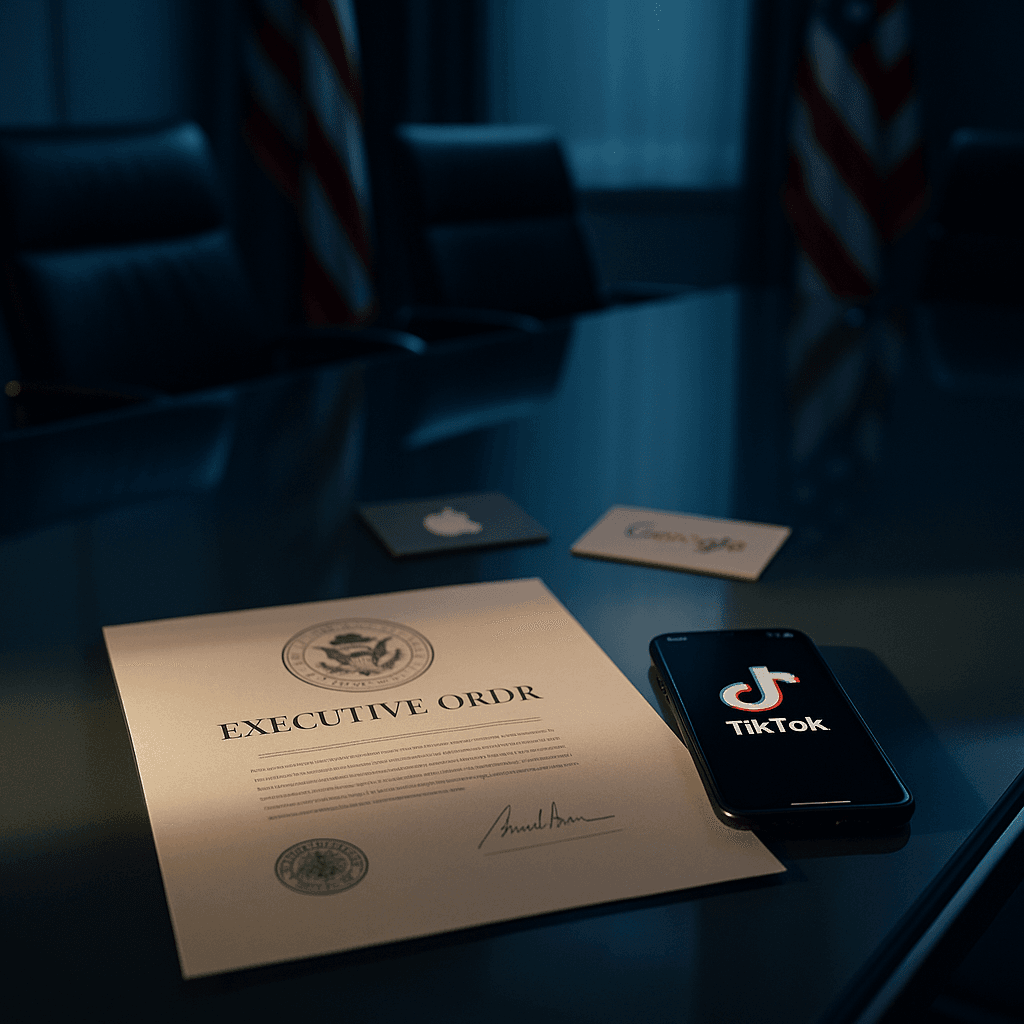President Trump just signed the executive order that officially hands TikTok's US operations to a group of American investors led by Oracle cofounder Larry Ellison. After five deadline extensions and months of negotiations, the $14 billion deal marks the end of ByteDance's control over America's most downloaded app - and the beginning of a new era where US tech giants control the algorithm that shapes what 170 million Americans see daily.
The signature happened Thursday afternoon during a White House press conference where Trump revealed he'd gotten the green light directly from Chinese President Xi Jinping. "I had a very good talk with president Xi. We talked about TikTok. He gave us the go-ahead," Trump said, though he admitted there was "a bit of resistance from the Chinese side." By evening, Beijing hadn't issued any official acknowledgment of the deal.
The numbers tell the story of a massive wealth transfer. VP JD Vance pegged TikTok's US valuation at around $14 billion - a fraction of ByteDance's $330 billion worth as of August, according to Reuters reporting. Both Trump and Treasury Secretary Scott Bessent credited Vance as the key dealmaker who brokered the agreement.
Oracle emerges as the big winner here. "Oracle is playing a very big part," Trump confirmed at the press conference, with founder Larry Ellison joining a select group of American tech titans taking control. Microsoft founder Michael Dell and media mogul Rupert Murdoch round out what Trump described as "four or five" investors, though Vance said the complete roster will be announced "in the days to come."
The real power shift isn't about ownership - it's about algorithmic control. "What this deal ensures is that the American entity and the American investors will actually control the algorithm," Vance explained during the briefing. "We don't want this used as a propaganda tool by any foreign government." That's a seismic change for a platform where the recommendation engine is everything, determining what content TikTok's 170 million US users see on their For You pages.
But major questions remain unanswered. It's still unclear whether ByteDance retains any operational role in the US version of TikTok. The Chinese company had been betting on Project Texas - a data separation system designed to wall off US user information from China-based employees. Industry experts say clean separation is nearly impossible for a global platform that requires cross-border data sharing between different regional operations.
For lawmakers who've been pushing the TikTok ban, any continued ByteDance involvement could violate the spirit of the divestiture law. On the flip side, if the deal essentially means copying ByteDance's source code and algorithms, that could run afoul of Chinese regulations on technology transfers.












